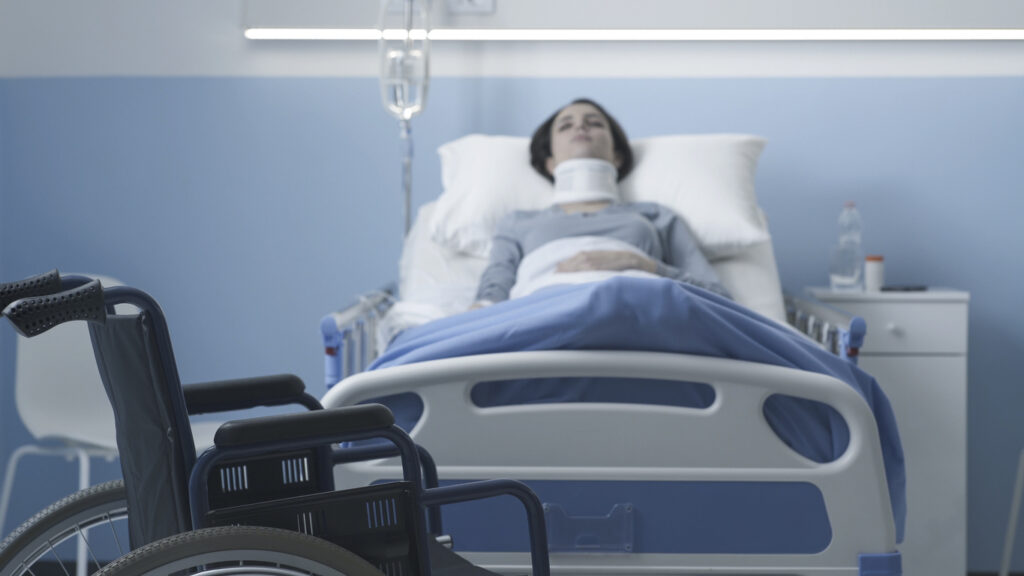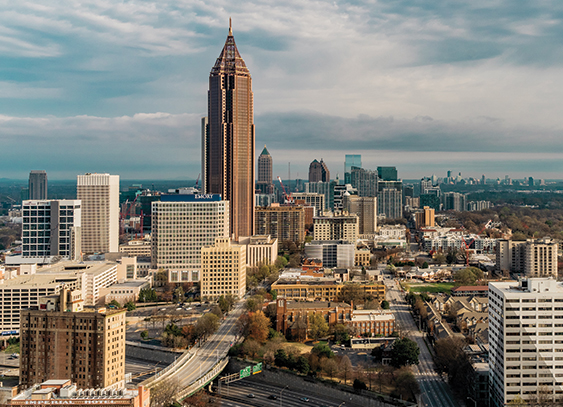
Travel is a lot of fun–until you suffer a severe injury. A severe enough injury could delay your return home by rendering you musically unfit for travel, at least for a while. Your safest option is to hope for the best but prepare for the worst-case scenario.
Prepare in Advance
Make sure you carry enough insurance such that it will cover you for an accident in Georgia and that it meets the minimum legal requirements for driving there. When it comes to car insurance, you’re probably covered, even if your state’s minimum coverage is less than Georgia’s. You also need out-of-state coverage for other types of accidents.
If you’re traveling to the US from abroad, it’s critical that you purchase insurance that is valid in the United States. Citizens of other countries are often shocked at the cost of medical care here. You might also want to consider purchasing international travel insurance (see below).
Travel Insurance
Consider purchasing travel medical insurance before you leave home. Travel medical insurance covers medical expenses, emergency medical evacuation, and other unexpected events that could disrupt your trip. Some policies even cover flight cancellation.
Travel medical insurance might cost around 5%-8% of your total trip expenses. It’s a significant expense, but it can be worth it just for the peace of mind it provides you.
Special Case: Florida Drivers Who Lack Liability Insurance
Florida is one of the few states that does not require its drivers to purchase liability insurance. If you don’t carry any, and if you get into a car accident in Atlanta that is your fault, the injured party can seek compensation from your personal assets (your home, for example).
The good news for you is that Georgia requires its own drivers to purchase liability insurance. That means if your damages are high enough and if the accident is the Georgia driver’s fault, you can recover from both your own PIP insurance and the at-fault driver’s liability insurance.
Steps To Take at the Scene of the Accident
Take the following steps in the immediate aftermath of the accident, to the extent that your injuries don’t prevent you from doing so:
- Call 911. At the very least, you need an ambulance. If you were involved in a car accident, Georgia law requires that the police be notified in many instances. In any case, a police officer is the perfect neutral third party witness who can prepare an accident report.
- If your injury occurred on the premises of a business, report your accident to the manager and ask them to prepare a report.
- If you were involved in a car accident, get the other driver’s insurance information.
- Cooperate with the police when they arrive at the scene of the accident.
- Go to the hospital as soon as the ambulance arrives.
- Save all medical documentation from your visit.
- If you were involved in a car accident, report the accident to your insurance company. However, be careful about any correspondence prior to seeking legal advice from a lawyer.
- Don’t return home until the doctor clears you for travel. Failure to wait could give the at-fault party a ‘failure to mitigate damages” defense.
- Once you are home, follow your doctor’s instructions to the letter and seek follow-up care.
Take any other steps that make sense under the circumstances of the accident.
Jurisdiction
If you plan to file a lawsuit, where do you file it? If you were involved in a multi-party accident, the various parties might live in different jurisdictions. The bottom line is that you can almost always sue in Georgia in this scenario.
In some cases, you might be able to sue in your home state as well. You might sue the employer of a negligent party in your home state, for example, if the employer does business in your state.
Once you have decided where to file your claim, the settlement process works just about the same way as an in-state claim. Remember, filing a lawsuit can be just a step in the settlement process. It doesn’t mean you have to go all the way to trial.
Damages
Georgia, like other states, recognizes the following types of damages:
- Economic damages: Medical expenses, lost earnings, out-of-pocket expenses, and more.
- Non-economic damages: Emotional distress, pain and suffering, loss of enjoyment of life, and other intangible damages. Non-economic damages typically make up the majority of a court-ordered personal injury award.
- Punitive damages: Punitive damages are an extra amount that the court might add to punish the defendant for outrageous conduct.
You can seek these damages in settlement negotiations before or after you file a lawsuit.
You Probably Need a Lawyer for an Out-of-State Claim
You’ll probably end up settling your claim in Georgia. Out-of-state claims raise issues that in-state claims don’t. Consequently, make sure the firm you select handles out-of-state clients because not every firm does.
The odds are, however, that you will settle your claim out of court. You might not even have to physically return to Georgia. Schedule a free initial consultation with an Atlanta lawyer today.
Contact the Atlanta Catastrophic Injury Law Firm of Malone Law Medical Malpractice and Severe Injury Lawyers for Help Today
If you or a close one have suffered from medical malpractice in Atlanta, Georgia, please call Malone Law Medical Malpractice and Severe Injury Lawyers at (770) 390-7550 or contact us online to schedule a free case evaluation today.
We proudly serve in Fulton County.
Malone Law Medical Malpractice and Severe Injury Lawyers
2 Ravinia Dr NE Suite 300
Atlanta, GA 30346

